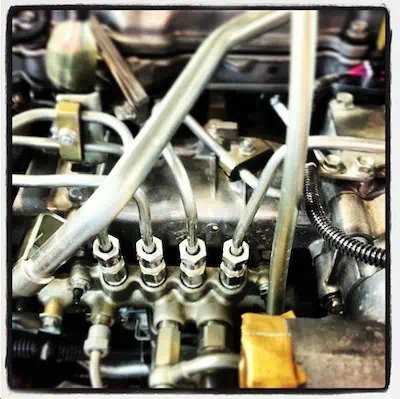20 Diesel Engine Tips

Give your diesel engine a little TLC and it will keep going and going and going, but neglect that maintenance and it will die an untimely death.
Mack Boring has been in the diesel engine business since the 1920s and is one of the largest distributors of Yanmar engines in the world. The company trains over 1,000 people on the ways of diesel engines every year, so its instructors know what they are talking about. Here are 20 quick tips I learned while attending diesel school:
–Change your engine oil every fall; old oil left in the engine becomes acidic and can corrode the inside of your engine.
–Live in a year-round boating climate? Keep track of your engine hours and change the oil accordingly.
–Don’t forget to change the old sealer O-ring when you install a new oil filter.
–When taking apart any part of the engine, snap step-by-step photos with your cell phone to keep track of the order for reassembly.
–Using additives in your engine oil could void your warranty.
–Check your raw-water sea strainers before every trip to make sure they’re not clogged
–Dive under your boat and check the raw-water intake to make sure the seacock is free of debris and barnacles.
–Remove your raw-water pump impeller during winterization; if you save it store it in a jar of extra-virgin olive oil, which won’t corrode the rubber.
–Take out a bolt? Follow your engine’s service manual and use a torque wrench to retighten it to the proper torque specs.
–Change your engine’s antifreeze every two years; use pink extended life antifreeze and mix it properly with distilled water.
–Change your engine’s mixing elbow every three years.
–Test the pressure cap with an automotive cap tester from an auto parts store.
–Check your engine’s electrical wiring for loose or dirty connections.
–Use a belt tension jack to make sure your engine’s belts are properly tightened.
–Never use automotive belts on a boat engine; they don’t hold up well in a marine engine room environment.
–Use a thread gauge to make sure you’re putting the right-size bolt into the right hole.
–Check your propshaft alignment; a misaligned shaft can cause your engine to smoke and/or overheat.
–Stick a piece of paper towel in a socket wrench to hold a bolt in place so it doesn’t fall into the bilge while tightening it.
–Never fully tighten a bolt on your engine right off the bat; tighten in stages according to the torque sequence in your service manual.
–Keep your diesel tank full to avoid microbial growth in the tank.
View the full article here.
